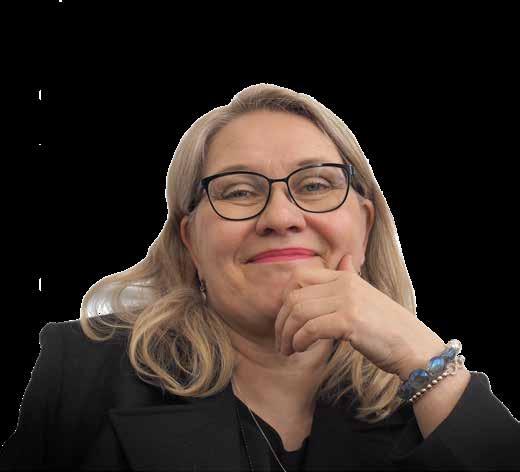
2 minute read
Editorial
We already see cases where local faculty and community experts have been able to carry out observations and research in collaboration with researchers who are unable to travel. Remote teaching brings its own challenges, but carried out in collaboration with a local mentor, it does provide a model for academic delivery in the Arctic that should be used more. To support the faculty who had to move their teaching online this spring, UArctic launched a platform for open sharing of online Arctic teaching materials which has already gained a lot of content.
While dealing with the crisis, UArctic's leadership has been united at our computers, planning how the network might look like in the next decade. In the spirit of rethinking Arctic science collaboration, UArctic is taking the initiative to work for a new International Polar Year (IPY) as a process culminating in 2032–33. In collaboration with our partners IASC and IASSA, we invite local actors to build new movements for polar science collaboration that also engage the residents of the Arctic in new ways.
Advertisement
2020 marks the first year of the UArctic Association registered under Finnish law. Our new legal basis increases our ability to handle matters as an independent organization. It also complements the trust and purpose stemming from the initiative of the Arctic Council to create UArctic more than twenty years ago.
By the end of this year, UArctic will launch our strategy for the next 10 years. It is our ambition to work with our members and the peoples of the Arctic to build a strong, engaged, informed and dynamic North, creating better lives and environments for all northerners.
EDITORIAL
By OUTI SNELLMAN Vice-President Organization, UArctic
When we were deciding on the theme of this magazine in late 2019, the choice of climate action seemed obvious. The whole world was uniting behind a 15-year-old school girl from Sweden, and the message from the youth through the school strikes on Fridays was very clear. “There is no planet B – let’s act now.” “Let’s listen to the science – and act now.” The call for action was like a massive wave. Amidst the despair there was also light: perhaps there is hope for the world after all, if we all unite in action, right now.
We sent the call for submissions to UArctic’s entire membership, asking them to propose articles of their own around the theme. Their response was overwhelming both in amount and variety. Each piece speaks of climate action but there is diversity in their perspectives, ranging from member institutions’ internal actions to those of education and research programs and projects, without forgetting how each of us as individuals can make a difference.
In spring 2020 the world was taken by surprise by another very immediate challenge, COVID-19. While we are desperately fighting the pandemic, I hope that we are also able to learn from the ways in which we coped during the crisis. Issues like digital mobility and online collaborative classrooms got an unprecedented push; some call it a giant digital leap. We need to keep building on those opportunities, so that we can make international collaboration less harmful to the environment and also possible in times of such crises. Just like the world united under the slogan “Stronger Together” to combat the pandemic, we can, through collaboration, tackle one of the biggest challenges the globe has faced: climate change. In that, strong international collaboration on all levels of society is a prerequisite.







